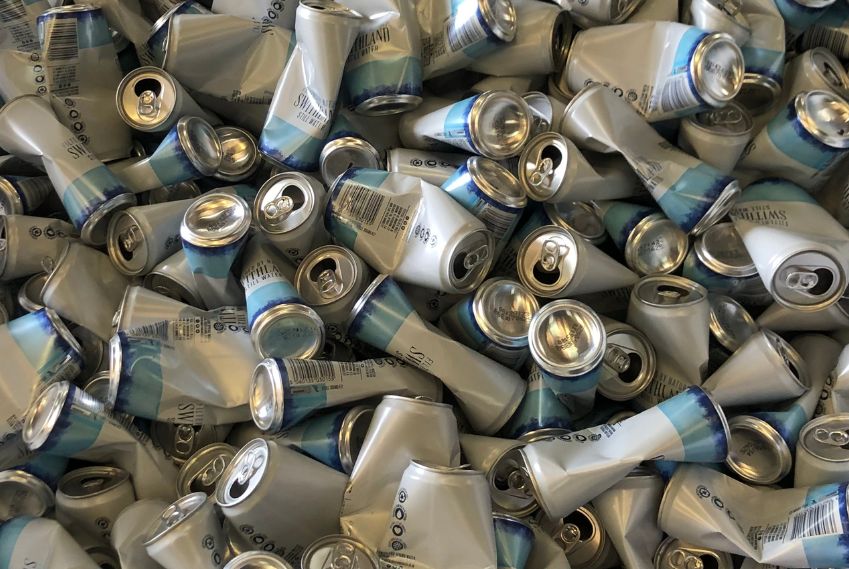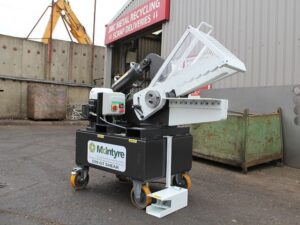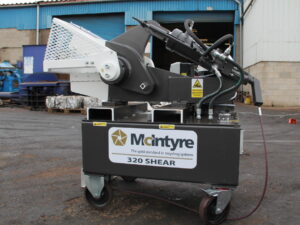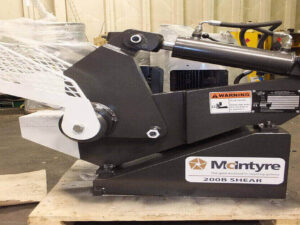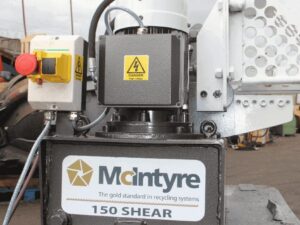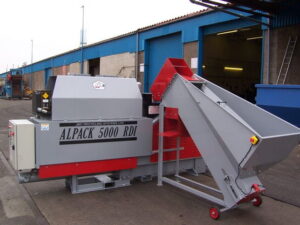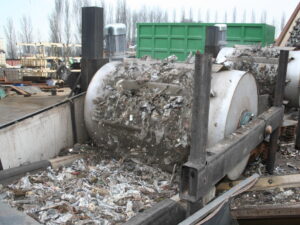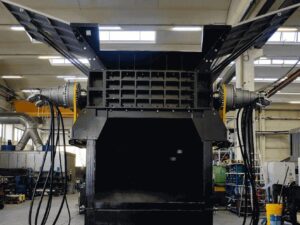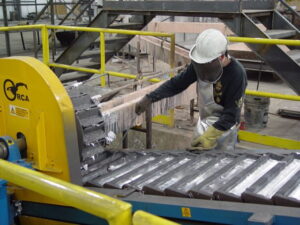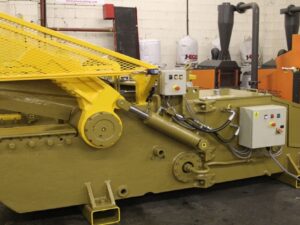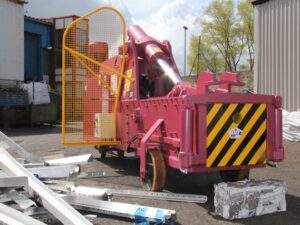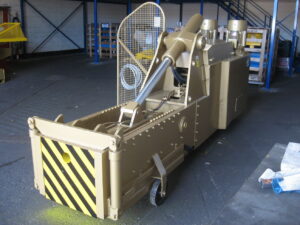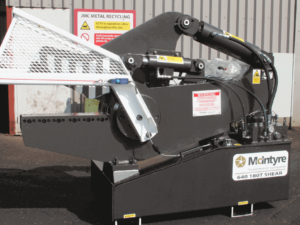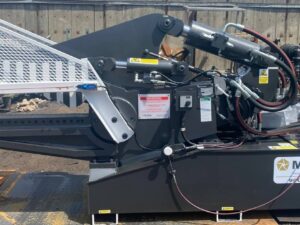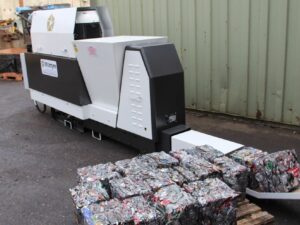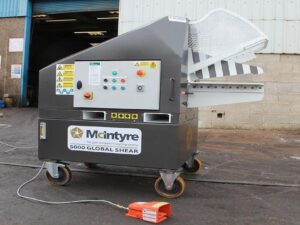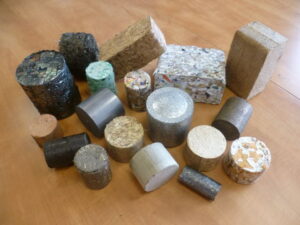Aluminium recycling stands at the forefront of environmental stewardship, significantly reducing the demand for virgin materials and minimising the environmental footprint of aluminium production.
Our focus on advancing recycling processes underscores our commitment to environmental sustainability and the pivotal role of aluminium recycling in promoting a circular economy.
The Aluminium Recycling Process
Aluminium recycling is an effective process that significantly contributes to sustainability by conserving resources and minimizing emissions, playing a crucial role in the circular economy. The process involves several key stages: collection, sorting, processing, and repurposing of aluminium.
1. Collection
The initial phase of aluminium recycling involves gathering aluminium waste. This includes a wide range of materials, from beverage cans to automotive parts. Collection methods are diverse, encompassing community recycling programmes, dedicated collection centres, and direct recovery from industrial sources.
2. Sorting
Once collected, the aluminium materials must be sorted. This crucial step ensures the purity and quality of the recycled aluminium, affecting its value and usability. Sorting can be manual or automated, with technologies like metal analysers playing a vital role in distinguishing between aluminium and other materials.
3. Processing
After sorting, aluminium is prepared for melting. This involves shredding to reduce size and baling to consolidate the material, making it more manageable and efficient to melt.
4. Melting and Purification
Melting is performed in specialised furnaces, designed to minimise energy consumption. The process’s efficiency highlights the importance of using technology that reduces the environmental impact.
Following melting, the aluminium undergoes purification to remove any impurities, ensuring the quality of the final product.
5. Solidification
The purified, molten aluminium is then cooled and solidified. Depending on the intended use, it can be cast into ingots, bars, or specific shapes. This stage is crucial for ensuring that the recycled aluminium meets the required specifications for new products.
The Benefits of Aluminium Recycling
Environmental: Aluminium recycling is a key environmental strategy, significantly reducing carbon emissions and conserving natural resources. By reusing aluminium, we lessen the need for virgin material extraction, thus protecting ecosystems and decreasing energy consumption.
Economic: Beyond its environmental impact, aluminium recycling offers considerable economic advantages. It provides cost savings by reducing the need for raw material extraction and processing. Furthermore, the recycling industry generates significant revenue and fosters economic growth through the sale of recycled materials.
Social: The recycling sector is a notable job creator, providing employment opportunities across various roles. By investing in recycling, we support community development and contribute to a sustainable economy.
Aluminium Recycling Case Studies
These real-world examples affirm the effectiveness of our processes and technology in enhancing sustainability and economic viability.
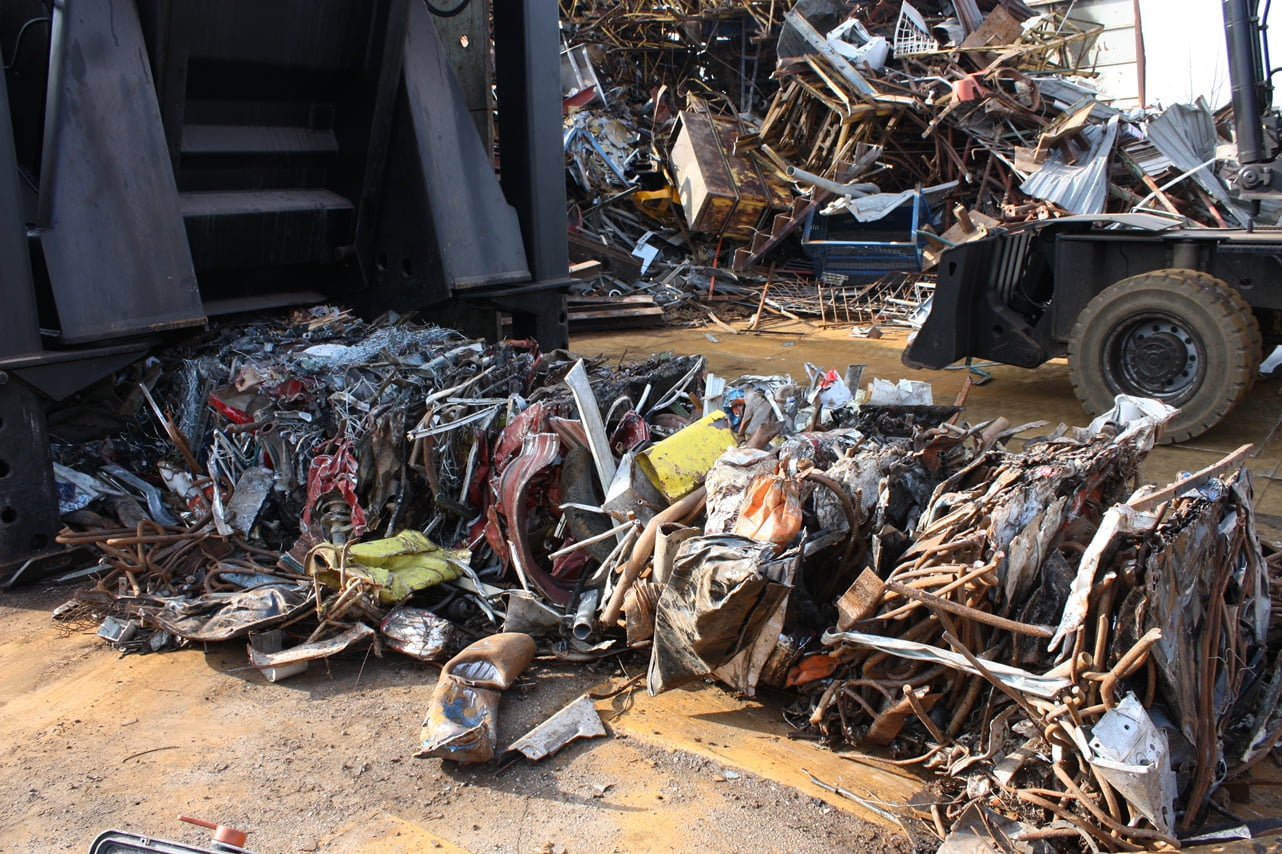
Types of Aluminium and Alloys Recycled
Aluminium can be broadly categorised into two types: post-consumer scrap, like beverage cans and automotive parts, and production scrap from manufacturing processes. Both types are valuable resources for recycling, contributing to the supply chain for new aluminium products.
Equipment and Technology in Aluminium Recycling
The efficiency of aluminium recycling relies heavily on the technology and equipment used. Investments in state-of-the-art sorting technologies, energy-efficient melting furnaces, and advanced processing equipment can significantly reduce energy consumption, operational costs, and environmental impact.
The development of innovative recycling technologies continues to enhance the efficiency and effectiveness of aluminium recycling, supporting the shift towards a more sustainable and circular economy.
Types of equipment used includes:
- Alligator shears
- Can balers and sorters
- Shredders and hammer mills
- Aluminium ingot casting machines
Aluminium Recycling FAQs
Have questions about aluminium recycling? Dive into our FAQs for concise, informative answers.
What types of aluminium recycling equipment are available?
Aluminium recycling equipment includes a variety of machinery designed for the efficient processing of aluminium materials. This ranges from shredders and balers to melt furnaces and casting machines, each serving a specific purpose in the recycling process to accommodate different forms of aluminium waste, ensuring maximum efficiency and output.
How does aluminium recycling machinery contribute to sustainability?
Can aluminium recycling equipment handle different types of aluminium and alloys?
Yes, modern aluminium recycling equipment is sophisticated enough to process various types of aluminium and alloys. Specific machines are designed to sort and recycle aluminium efficiently, regardless of its previous use or alloy composition, ensuring that as much aluminium as possible is recovered and returned to the manufacturing cycle.
Related Equipment
Contact Our Aluminium Recycling Experts
For further inquiries or to learn more about JMC Recycling’s products, contact us now. Whether you prefer a direct conversation or filling out a form, we’re here to facilitate easy communication.
Meeting Industry Standards and Regulations
Aluminium recycling, while inherently beneficial by reducing the need for virgin material extraction and lowering emissions, must adhere to strict environmental standards. These standards are designed to minimise the environmental impact of recycling processes, including emissions, energy consumption, and waste management. Ensuring compliance is not just about meeting legal requirements; it’s about adopting best practices that contribute to sustainable development.
Addressing Aluminium Recycling Challenges
Aluminium recycling faces challenges, particularly in the areas of collection, sorting, and contamination. Efficient collection and accurate sorting are foundational for high-quality recycling processes. Advanced sorting technologies and effective pre-treatment processes are essential for enhancing the efficiency and effectiveness of aluminium recycling operations.
Speak with Our Aluminium Recycling Experts
Interested in learning more about aluminium recycling and how JMC Recycling can support your needs? Our team of experts is here to help. Contact our sales team today to discover our commitment to customer service and innovation.

